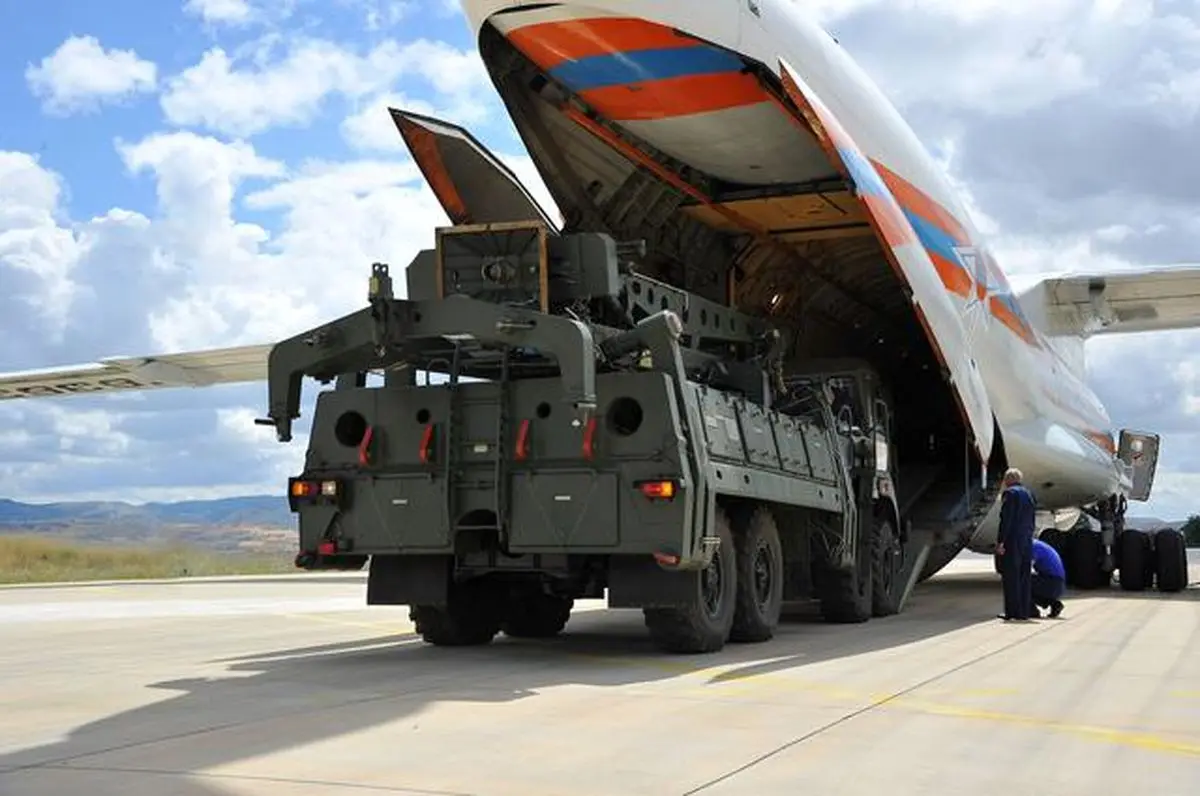Turkey says S-400 system 'vital', will retaliate any US sanctions

Turkish Foreign Minister Mevlut Cavusoglu has repeated a retaliation threat against any US sanctions over Ankara's purchase of a Russian missile defence system.
Speaking at a conference in Qatar's capital, Doha, Cavusoglu said on Saturday that Turkey would not cancel its deal with Russia over the S-400 missile system "whatever the consequences".
"Sanctions and threatening language never work. But if sanctions are placed, Turkey will have to reciprocate," Cavusoglu said at the Doha Forum, a two-day conference billed as a global platform for dialogue.
NATO allies Turkey and the United States have been at odds over the former's purchase of the advanced system, which the latter says is not compatible with NATO defences and is a threat to its F-35 stealth fighter jets.
S-400 'vital' for Turkey
This week, senators in the US-backed legislation to impose sanctions on Turkey over the S-400 deal earlier this year and its recent military operation in northern Syria.
The vote, which was immediately condemned by Turkey, was seen as the latest move to push US President Donald Trump to take a harder line against Ankara.
The Trump administration has so far not imposed sanctions despite the president in 2017 signing a sanctions law that mandates financial penalties for countries that do business with Russia's military.
Amid already strained bilateral ties, Washington has suspended Ankara from the US F-35 stealth fighter jet programme, in which it was a producer and buyer, to penalise it for buying the Russian system.
Yet, Cavusoglu said that the purchase - the first such move between a NATO member and Russia - was a necessity.
"We are very desperate for an air defence system. We tried to procure it from the US and others, but it didn't work. This is a defence system that is vital for us."
'US still our ally'
US politicians' anger towards Turkey deepened after Ankara in October launched its military operation against the Kurdish-led Syrian Democratic Forces (SDF) which had helped US forces combat the ISIL (ISIS) armed group.
The SDF is spearheaded by the Kurdish People's Protection Units (YPG), which Ankara considers a "terrorist" group and an offshoot of the Kurdistan Workers' Party (PKK), which has waged a decades-long armed fight against the Turkish state that killed tens of thousands of people.
Referring to the operation in Syria, Cavusoglu said that while bilateral relations remain strong, "outstanding issues" between the two countries exist.
"The US is still our ally because Trump understands and values relations with us," Cavusoglu said, adding that Turkey remains a committed member of NATO.
"But we are expecting from the US to disengage from the YPG/PKK which is a threat to our national security," he added.
The military operation came shortly after Trump pulled back his country's troops from parts of northern Syria, east of the Euphrates River. Ankara said it wants to create a "safe-zone" cleared of the Kurdish fighters and facilitate the repatriation of some of the 3.6 million refugees it hosts on its soil.
END
